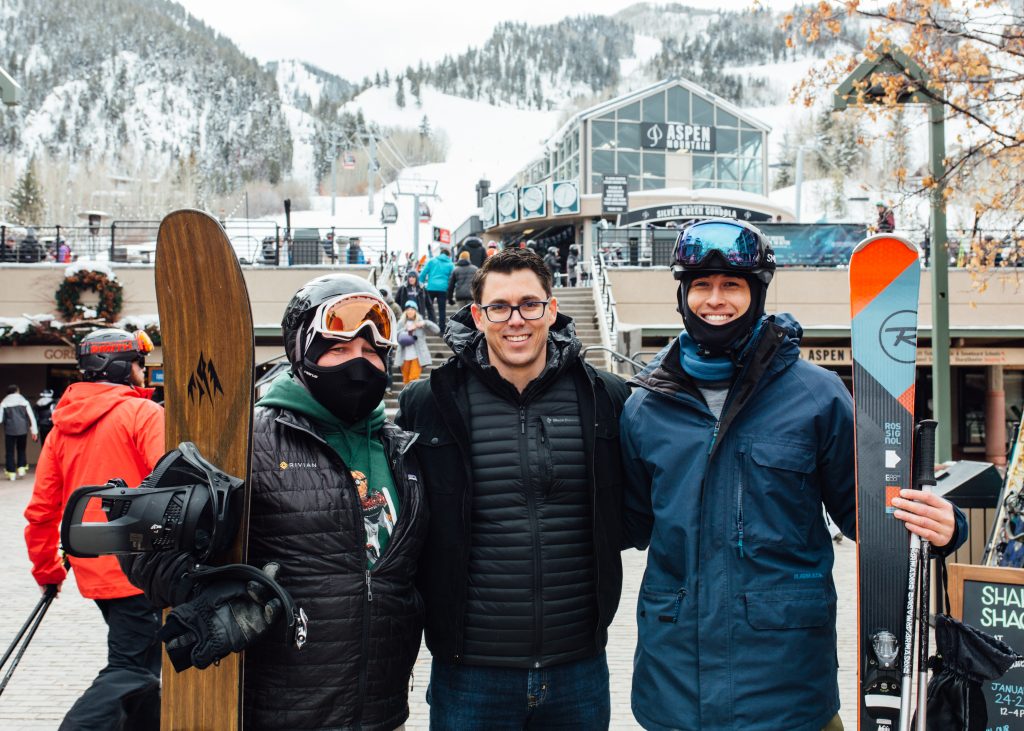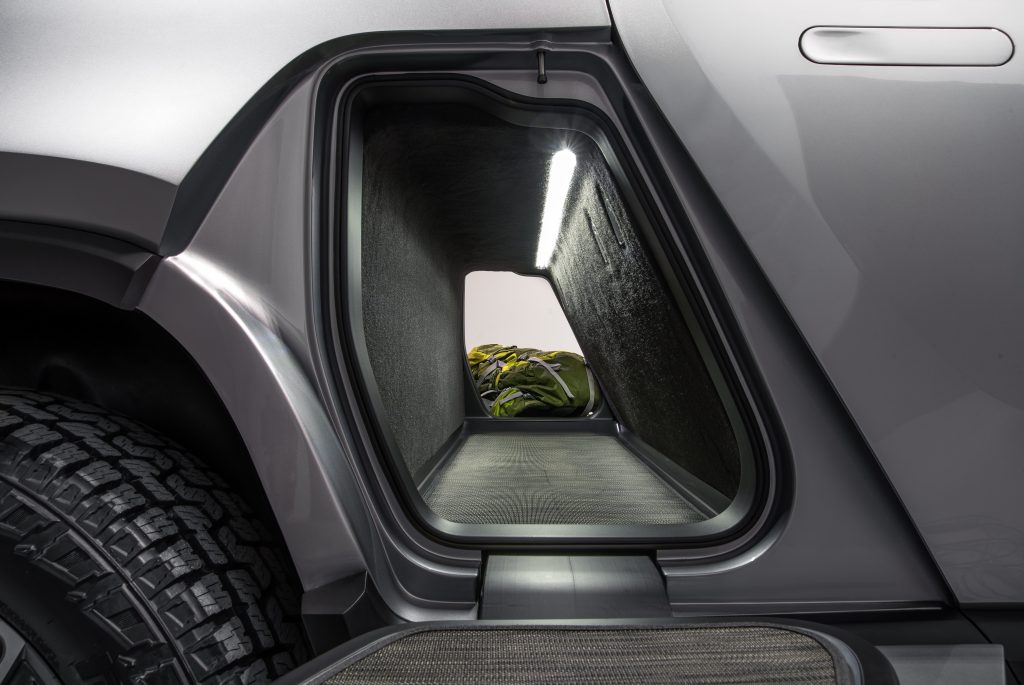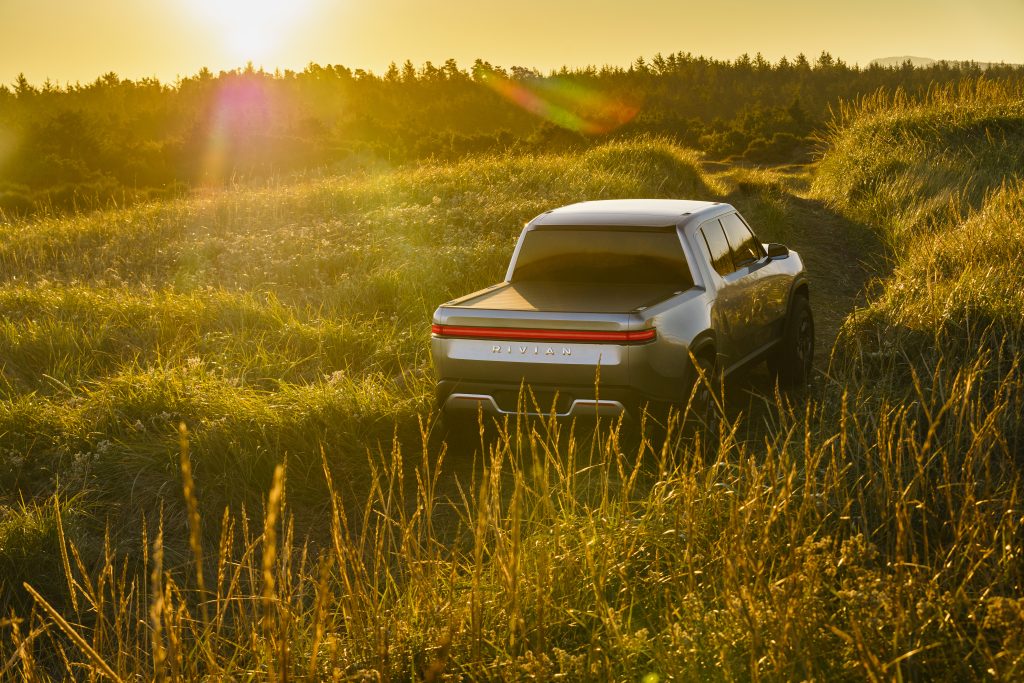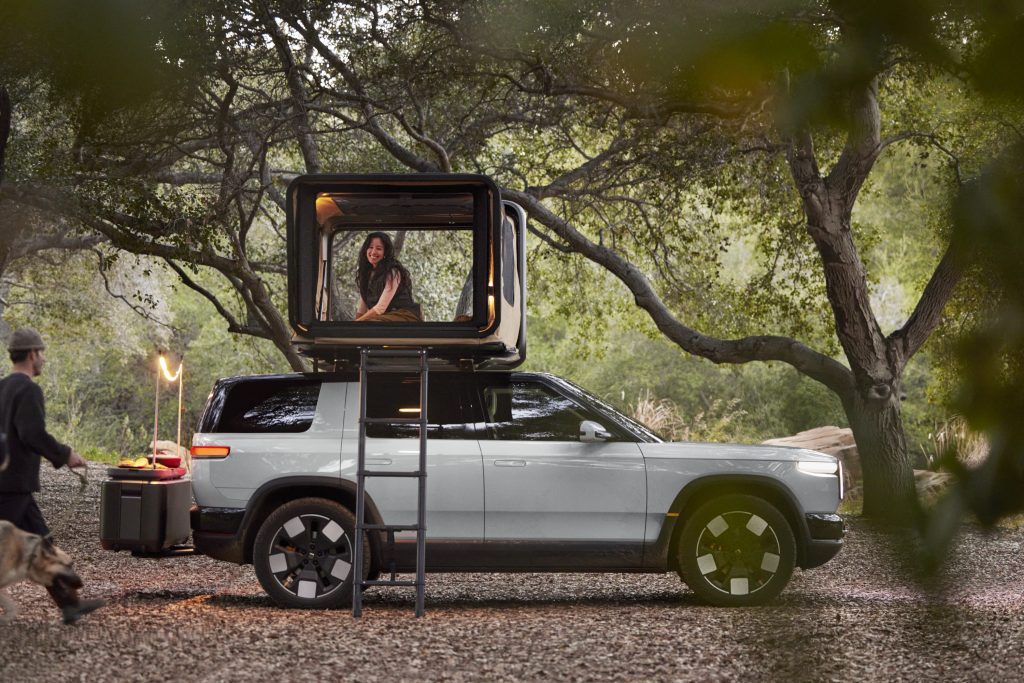Interview: Rivian Founder, RJ Scaringe at Aspen’s X Games
Positioning the trucks as adventure vehicles, moving production to Illinois and more

We’re nestled indoors in Aspen Village and, while it’s frigid outside, this home—which is serving as a basecamp for the Rivian team—is inviting. The brand recently debuted its R1T electric pickup truck and R1S electric SUV at the LA Auto Show in November, but their presence here in Aspen, Colorado, coinciding with the X Games, is no accident.
Rivian founder and CEO, RJ Scaringe, believes the company has to stay hyper-focused and have a clear identity, one that specifically revolves around adventure. “Adventure doesn’t necessarily have to mean scaling up a mountain,” he says, “It can be taking the kids to the beach” or anything else that constitutes a person’s unique sense of exploration.

If one does want to scale up a mountain, however, the trucks feature a quad-motor set-up, meaning each wheel gets its own motor; allowing for specific torque distribution. Boasting a very quick zero to 60mph time of just three seconds for the 135.0-kWh battery model—especially considering the size and utility offered as the R1T and R1S (the SUV iteration) are in a segment of their own, for now.
That those in attendance of the X Games in Aspen may see these trucks at a display here before watching Chloe Kim or Alex Ferreira score big air in the SuperPipe only adds to the excitement—and the positioning of Rivian as an outdoors and adventure brand.

“We want Rivian to be the brand you use to go skiing in the year 2035—the unequivocal choice. You may not own it as we move away from ownership models, but we want to be the one you choose,” Scaringe says. The start-up’s founder believes the bifurcation we’re seeing between commodity transportation and aspirational brands will only continue. Rivian, for its part, wants to own a slice of that aspirational sector. Scaringe credits Tesla with “changing the notion, the untruth that electric cars are glorified golf carts” and wants Rivian to deviate from this notion further with its off-road capability.
“That is our ‘Porsche at the racetrack’ moment,” he explains. “Most Porsche buyers will either never or hardly ever track their cars, but it’s knowing that you can—that your car has that capability—that is important.”

When Rivian began developing the R1T, Tesla really was the only other brand having any success, but a slew of battery-powered models have since arrived or will be unveiled soon. The Jaguar I-Pace electric crossover is up for two World Car Awards, while German automakers are each planning to kick off their fully-electric efforts as well—with the Mercedes EQ, Audi E-Tron, and Porshe Taycan offering more options.

But Scaringe sees the use-case as bigger than what those cars offer, and more in line with the Cadillac Escalade or GMC Denali models. He says that space needs something that’s truly premium, and resets people’s expectations in that segment. Using the quad-motor set-up rated at 754 horsepower and 826 pound-feet of torque is obvious, but a clever rethink of the storage areas led to a unique hidden storage space that can fit skis or a snowboard on the R1T. And with the lack of an engine, there’s also a front trunk that could easily store two carry-on suitcases, or one larger suitcase.
We have the capital, the team, and the technology
As for challenges ahead, there’s one thing of which Rivian’s founder is mindful: “The complex act of building and making sure suppliers deliver on time.” (Perhaps watching as Tesla has publicly struggled with that has meant Scaringe is concerned for his own brand.) In fact, Rivian moved from its initial home in Florida to Michigan in order to tap into all of the skilled people there. While Tesla looked to reinvent the production wheel, Scaringe says they would like to find efficiencies—the auto industry already builds nearly 90 million cars per year. So many of the company’s 700 employees are at its Plymouth, Michigan HQ, are focused on the supply chain and assembly. The rest are in the company’s two California offices, with the Orange County location handling battery and propulsion, while the San Jose office is dealing with autonomous and self-driving topics.
Now the vehicles simply need to counter the misconceptions about electric vehicles: “They’re fragile, can’t go off-road. ‘I’m an F-150 buyer and I wouldn’t consider electric.'” Scaringe believes the trucks will do the talking, “We have the capital, the team, and the technology,” he says.
Rivian will begin deliveries next year.
Images courtesy of Rivian












